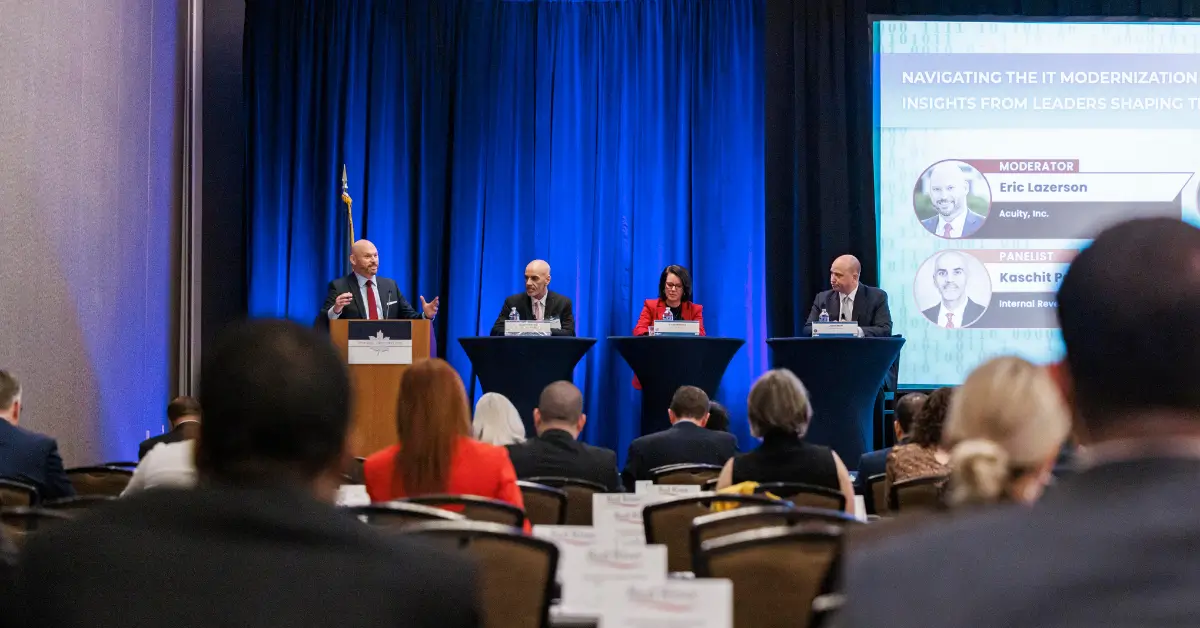Workforce is a determining factor of the success of any project, and it can be a challenge for federal agencies to find and recruit information technology experts and train their existing staff – who are often used to traditional processes – on new technologies.
Low-code software presents a solution to this problem. This programming method allows users to develop applications without having to learn the ins and outs of coding by providing a visual interface in which they can tailor an application to their specific needs.
During a panel discussion at the Potomac Officers Club’s 5th Annual CIO Summit last week, Internal Revenue Service Chief Information Officer Kaschit Pandya said embracing low-code software requires major cultural change.
Historically, he said, there is an idea that “IT owns technology.” In his agency, “it was really a cultural challenge for us to let go.”
The IRS, he continued, has multiple low-code software pilots underway, and the concept of citizen development – the process of teaching staff outside the IT department to utilize these platforms – has been intertwined with these efforts.

For the Department of State, citizen development is a must when implementing low-code software, according to Laura Williams, the department’s deputy CIO for foreign operations.
She highlighted the organization’s unique challenge of constant staff rotation across various global locations, which poses a challenge for systems maintenance.
Issues of technology ownership are “even more compounded” by constant staff transitions at U.S. embassies, Williams said.
“So we have a knowledge management problem and a digital detritus problem with the abandonment rate of these super snazzy apps. What happens when that officer or even that IT professional rotates out and goes to the next place?” she asked.
To address these challenges, Williams aims to create “citizen communities of practice where they start to really understand what governance means and take ownership and responsibility of that as a community.”
Jamie Wolff, CIO of the National Nuclear Security Administration within the Department of Energy, said his agency is tackling the ownership problem by allowing individuals to choose what platform they use, which “brings that excitement and that change management to the business.”
“I do recognize that in the next generation, a few years down the road, we’re going to have to do rationalization, but if we start to get in the business of IT telling the business what tool they’re going to use, we’re going to go right back to that ownership problem,” he explained.
Pandya called attention to an IRS onboarding program that has helped IT staff begin to part with the concept of software ownership. With the infusion of citizen development, he noted, the program has “enabled the business to be able to do the work they need to do without IT’s intervention.”
“Now that we have done it, our people are feeling more and more comfortable with letting go, which has started to help us accelerate the onboarding of the customers and our business users,” said Pandya.
“At the end of the day, technology is relatively straightforward, but the people and the cultural changes are associated with how we work, what we work on, what the right skill sets are and if people are willing and receptive to learning this,” he said.

The Potomac Officers Club’s next event, the 2024 5G Forum on May 22, will bring together a new set of public and private sector experts to discuss how networks are transforming federal operations. To learn more and register to attend the event, click here.




